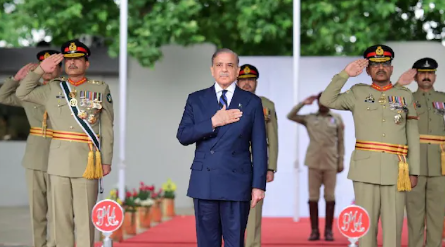The Pakistan Army has long been the power and policy shaper in Pakistani politics.

Pakistan Prime Minister Shehbaz Sharif’s rhetoric, as seen in his addresses to the Pakistan parliament and the nation’s citizens on Wednesday, is less about genuine policy and more about his own survival in Pakistan’s military-dominated ecosystem, intelligence sources speaking to CNN-News18.
They said that by amplifying the Pakistani army chief General Asim Munir’s agenda, Shehbaz Sharif secured short-term stability. The intelligence sources also said that the support to Munir shows Sharif will do everything for survival.
“The Pakistan Army establishment has historically dominated national security and foreign policy. It has long been the de facto power center shaping policy on India, Afghanistan and counterterrorism,” the sources said.
Shehbaz Sharif addressed the Pakistan parliament and the citizens of the nation twice on Wednesday, hours after India carried out Operation Sindoor – a counter terrorism operation to avenge the death of innocent civilians in southern Kashmir’s Pahalgam.
The people mentioned above said that civilian leaders often align with the military to avoid confrontation and ensure political survival. “By publicly backing General Munir, Shehbaz Sharif projects a unified front during crises. Shehbaz knows this and is being compliant to be in power,” sources said.
The Pakistan Prime Minister is supporting the military’s narrative of being the guardian of national security as civilian governments in Pakistan rarely survive without military approval.
“His rhetoric signals loyalty to the military establishment in a bid to deter potential coups or destabilisation. Also by focusing on external threats, it also diverts attention from economic crises and governance failures. After India’s Operation Sindoor, Sharif’s warnings of retaliation align with the military’s hardline stance,” the sources further added.
They also said that Sharif is framing Pakistan as a victim of aggression to gain international sympathy.
They referred to Shehbaz Sharif’s elder brother Nawaz Sharif’s removal from Pakistan Prime Minister role because Nawaz attempted to challenge military dominance during 1999 Kargil conflict, which led to his removal.









